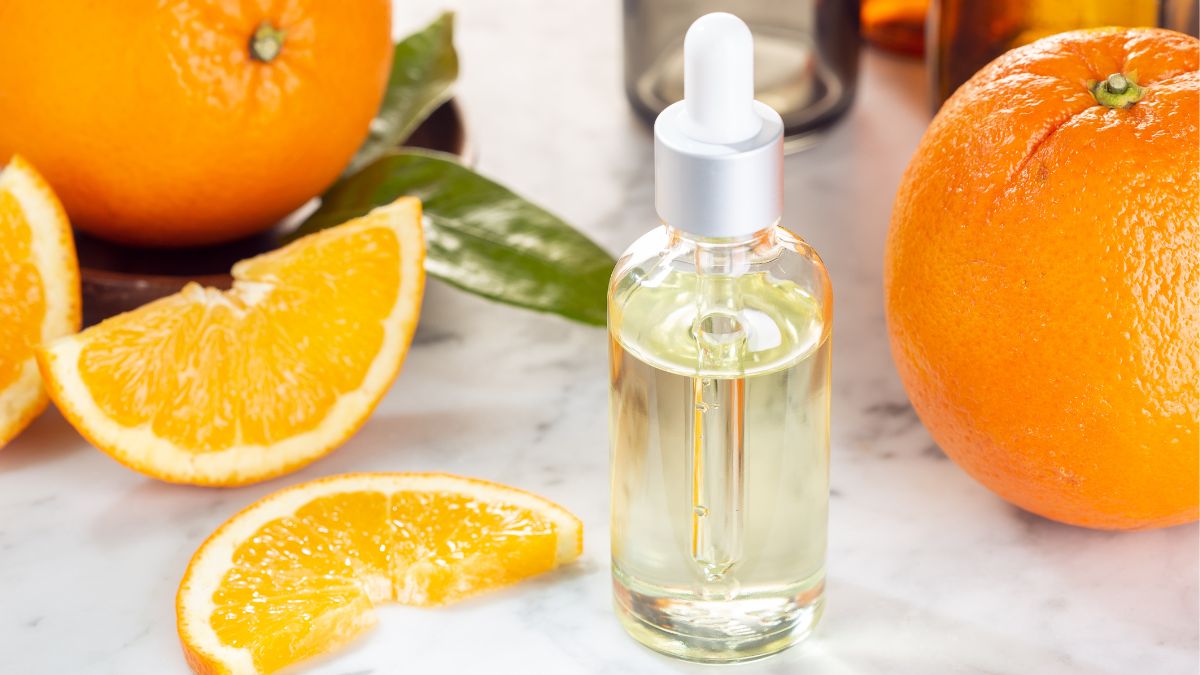If you use orange oil for gardening, your crops have a chance of growing organically! With this goal in mind, you need all the info available to succeed.
Orange oil is natural, safe to use, and if you have orange trees in your yard, you can make your own. If not, you can buy and use orange oil from your supermarket even if it isn’t listed as a pesticide.
You can protect your crops, potted plants, and house from annoying pests with orange oil. Its use isn’t limited to the garden, so if you dislike using chemicals in and around your home, orange oil is a must-have.
In this article, I share the best ways to use orange oil, how it can benefit your garden, and which other natural pesticides are worth trying.
The Best Ways Fo Use Orange Oil For Gardening
Orange oil is made by crushing and extracting the rind contents of this fruit. The oil’s natural enzymes and acids benefit most gardens and garden plants.
You can use orange oil as a very effective insect repellent, fungus, and mold killer. You can effectively sterilize your soil with it.
Orange oil is usually mixed with water to make a spray. The water to oil ratio depends on what you’ll use the mix for. Never spray orange oil onto seedlings and young plants, as the acids in this oil will be too strong and kill them.
The Benefits Of Orange Oil For Gardening
Insect Repellent
Orange oil acts as a natural and effective insect repellent. Using it as an insecticide helps plants fight off insects, enabling them to use all their energy for growing. Orange oil’s effects are on par with commercial synthetic insecticides. This makes it an effective all-natural solution for gardening problems.
Orange oil can eat through an insect’s exoskeleton, killing them. Using orange oil has effectively killed and repelled aphids, ants, and beetles.
Sterilize Soil
You can use orange oil to sterilize your garden soil. It can kill fungus and insects living underground.
Plant roots are vulnerable to fungus and rot-eating insects. Without healthy roots, your plants won’t thrive. Using orange oil in your garden and potted plants is very effective in sterilizing soil.
Cleaning Plants
Cleaning plants with a mist of orange oil can also combat mold and fungus growth. Remember to wait for your plants to mature a little before spraying them with orange oil.
Other Essential Oils That Also Work Great For Gardening
There are other essential oils besides orange oil that have great benefits for your garden.
Rosemary: You can add a few rosemary oil drops to your garden soil or even the stems of your plants. This will keep bugs away from your plant roots and leaves to ensure they’re not eaten. Rosemary repels full-grown bugs and their larvae. If you use rosemary essential oil in your garden, you might see an increase in your butterfly population since the woodsy smell attracts them.
Peppermint: This gardening oil has a sweeter scent than rosemary. It repels several insects like aphids, ants, spiders, and beetles. Peppermint oil can even be used inside your home as an effective insect repellent.
Melaleuca: Another great gardening oil is melaleuca. You can spray this on your soil and plants to eliminate fungus. Just avoid spraying it on plant leaves since this oil can cause sun sensitivity.
Lavender: A drop or two of lavender oil can attract beneficial insects like bees and butterflies to your garden. You can place a cotton ball soaked in lavender oil near your plants.
Cinnamon: You can use cinnamon oil in your garden to help control weeds. Simply spray the oil mixed with water on weeds and watch them disappear!
Essential Oils To Avoid
While there are many benefits to using essential oils in your garden, you should also avoid some.
- Eucalyptus is very soothing, but ingesting it can cause seizures.
- Drinking Chamomile tea can be relaxing, but it can also cause severe reactions in people allergic to daisies and ragweed.
- Peppermint has a fantastic smell and incredible cooling properties when applied to the skin but can have severe side effects like rashes, burning, or flushing.
- Some essential oils are highly poisonous to household pets. Avoid using peppermint oil if you have cats or dogs who wander in your garden.
To Sum It Up
Orange oil is a safe and effective alternative to chemical pesticides. People have been using it for decades to keep their gardens healthy without harming the environment or others.
You can mix a store-bought essential oil with water and other ingredients or make your own natural orange oil. If you have a tree in your yard or know of somewhere you can get organic oranges, I suggest using these. Simply cook the peels of many oranges, let them cool and use the strained liquid in your garden as a spray. Orange oil is an excellent pest repellent, whether you spray it near your plant roots or incorporate it into your soil.
I hope you enjoyed this article and found the information helpful. If you’ve used orange oil in your garden before, share your experience in the comments! You can also ask any additional questions you have about organic gardening.
FAQs
What is orange oil used for in the garden?
You can use orange oil in your garden to help fight pests and fungus. When plants don't have to use their energy to do this themselves, they have a better chance of thriving.
Is orange oil safe for vegetable gardens?
Yes.
Orange oil is safe for vegetable gardens, but you'll have to dilute it with water to ensure it doesn't harm your crops.
What pests does orange oil repel?
Orange oil best repels aphids, ants, crickets, flies, fleas, mites, and wasps.
Is orange oil a fungicide?
Orange oil can act as a fungicide in your garden. If you sterilize your soil with it, fungi growth will be inhibited.



